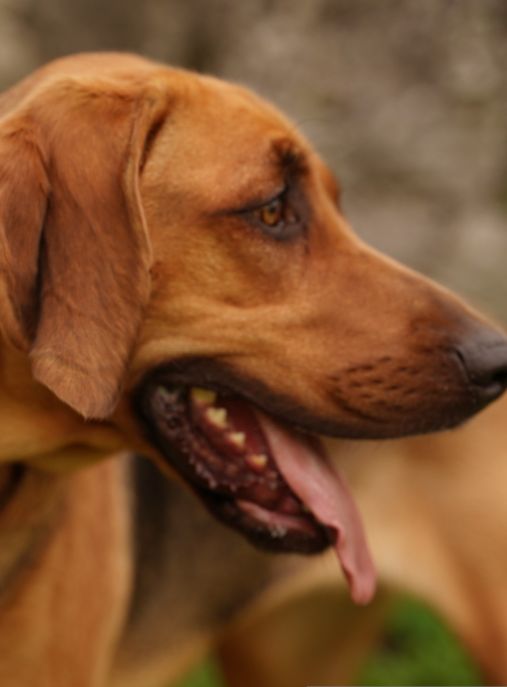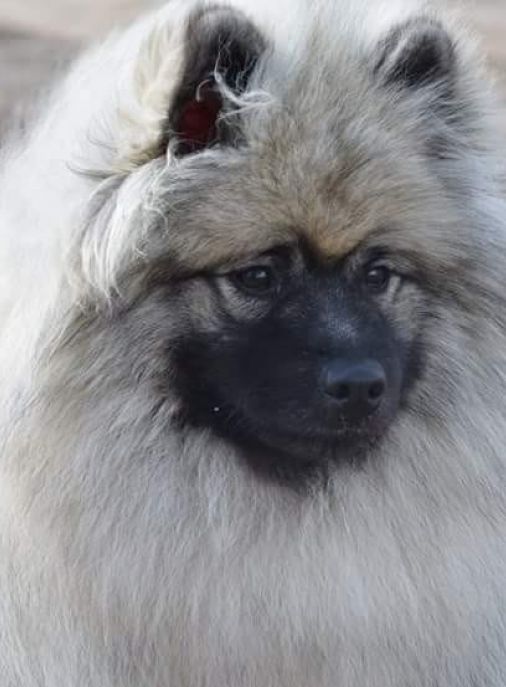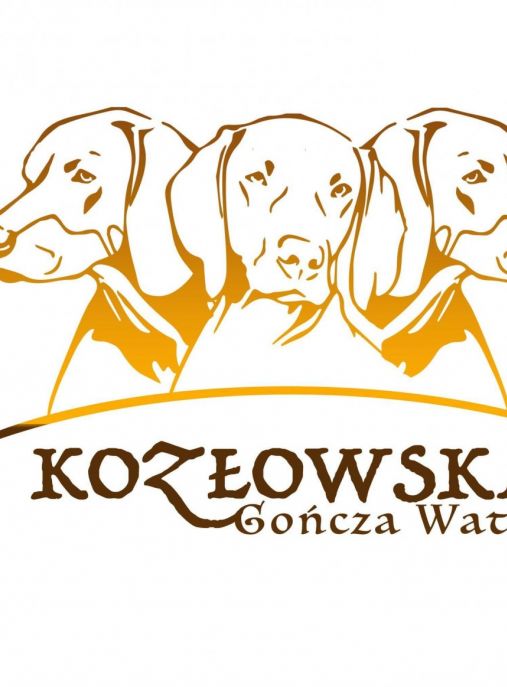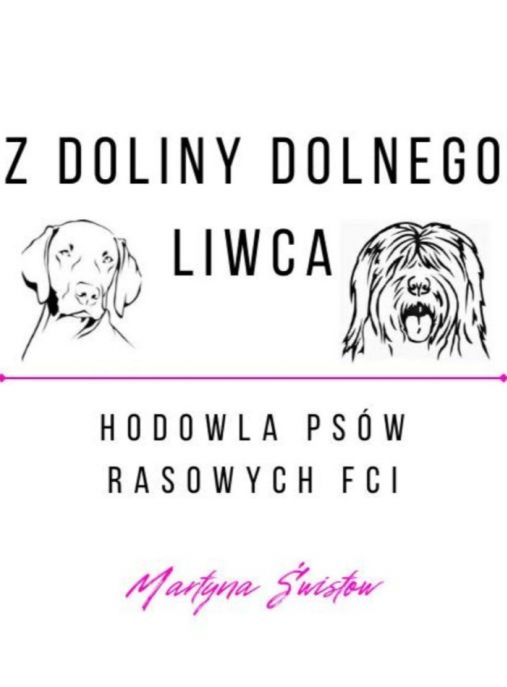The Polish Hound, also known as Ogar Polski, is a versatile and noble breed of dog that hails from Poland. With its distinctive appearance and exceptional hunting abilities, this breed has gained recognition and admiration both within its homeland and internationally. The Polish Hound is a medium-sized dog with a strong and muscular build, characterized by its long, droopy ears and a keen, intelligent expression.
The history of the Polish Hound can be traced back several centuries, with its origins believed to date back to the 13th century. This breed is thought to have descended from ancient hunting dogs brought to Poland by the Teutonic Knights. Over the years, the Polish Hound has been selectively bred for its exceptional scenting abilities and endurance, making it a highly skilled hunting companion.
According to the FCI (Fédération Cynologique Internationale) typology, the Polish Hound belongs to Group 6, Section 1.2, which includes scent hounds. This group comprises dogs that excel in tracking scents and are primarily used for hunting purposes. The Polish Hound is specifically classified under the Scent Hounds and Related Breeds section.
The Polish Hound is primarily bred for hunting purposes, particularly for tracking and chasing game. Its exceptional sense of smell, combined with its agility and endurance, makes it an ideal choice for hunting in various terrains. This breed is particularly skilled in tracking large game, such as deer and boar, but can also be trained to hunt smaller game, including foxes and hares.
In terms of physical characteristics, the Polish Hound typically weighs between 55 to 75 pounds (25 to 34 kilograms) and stands at a height of around 22 to 26 inches (56 to 66 centimeters) at the shoulder. The breed has a strong and muscular body, with a deep chest and well-developed limbs. The Polish Hound's coat is short and dense, providing protection against harsh weather conditions. The most common coat color is tricolor, consisting of black, tan, and white markings.
The life expectancy of the Polish Hound is generally around 10 to 12 years, although with proper care and a healthy lifestyle, some individuals have been known to live longer. This breed requires regular exercise to maintain its physical and mental well-being. Daily walks, jogging, or engaging in various activities that stimulate its hunting instincts are essential for a happy and healthy Polish Hound.
One interesting fact about the Polish Hound is its exceptional sense of smell, which is considered one of the best among all dog breeds. This breed's olfactory abilities are highly valued, making it an excellent choice for tracking scents over long distances. Additionally, the Polish Hound is known for its loyalty, intelligence, and adaptability, making it a wonderful companion for experienced dog owners who can provide the necessary training and mental stimulation.
In conclusion, the Polish Hound is a remarkable breed with a rich history and exceptional hunting abilities. Its distinctive appearance, coupled with its intelligence and loyalty, make it a beloved companion for those who appreciate its unique qualities. Whether in the field or as a cherished family pet, the Polish Hound continues to captivate dog enthusiasts around the world with its remarkable skills and endearing personality.
The Polish Hound, also known as Ogar Polski, is a remarkable breed of dog that possesses a unique character and temperament. These dogs are known for their loyalty, intelligence, and strong hunting instincts. With their striking appearance and exceptional abilities, Polish Hounds make excellent companions and working dogs. In this text, we will delve into the character of Polish Hound dogs, their behavior, and how to raise and train them effectively.
Polish Hounds are known for their friendly and affectionate nature. They form strong bonds with their families and are particularly gentle and patient with children. These dogs thrive on human companionship and are happiest when they are part of a loving and active household. They are not suited for a sedentary lifestyle and require plenty of exercise and mental stimulation to keep them content.
Due to their hunting background, Polish Hounds have a strong prey drive. They possess an excellent sense of smell and are highly skilled at tracking scents. This instinct can sometimes lead them to chase small animals, so it is important to keep them on a leash or in a securely fenced area when outside. Early socialization is crucial to ensure that they can differentiate between acceptable and unacceptable prey.
Polish Hounds are intelligent and eager to please, making them relatively easy to train. However, they can also be independent thinkers, so consistent and patient training methods are essential. Positive reinforcement techniques, such as treats and praise, work best with this breed. Harsh or forceful training methods can lead to fear or aggression, so it is important to use gentle and motivational techniques.
As with any breed, early socialization is vital for Polish Hound puppies. Exposing them to various people, animals, and environments from a young age will help them develop into well-rounded and confident adults. This will also help prevent any potential behavioral issues, such as shyness or aggression, from developing.
Polish Hounds are known for their deep, melodious baying, which is a characteristic of their hunting heritage. While this vocalization can be a charming trait, it is important to consider the noise level and potential disturbance to neighbors before bringing a Polish Hound into an urban or densely populated area.
In terms of grooming, Polish Hounds have a short, dense coat that requires minimal maintenance. Regular brushing will help keep their coat clean and healthy. They shed moderately, so occasional grooming sessions will help control loose hair. Additionally, regular dental care, nail trimming, and ear cleaning are essential for their overall health and well-being.
In conclusion, Polish Hound dogs possess a wonderful character that combines loyalty, intelligence, and a strong hunting instinct. They are friendly, affectionate, and make excellent family pets. However, they require an active lifestyle, early socialization, and consistent training to thrive. With the right care and attention, Polish Hounds can be a loving and devoted companion for many years to come.
The Polish Hound, also known as Ogar Polski, is a beautiful and intelligent breed that requires specific care to ensure their well-being and happiness. Here are some tips on how to care for Polish Hound dogs, including what to do and what not to do:
1. Exercise: Polish Hounds are active dogs with a strong hunting instinct. Regular exercise is crucial to keep them physically and mentally stimulated. Aim for at least 60-90 minutes of exercise daily, including walks, runs, and playtime in a securely fenced area.
2. Mental Stimulation: These dogs are highly intelligent and need mental challenges to prevent boredom. Engage them in activities like puzzle toys, obedience training, scent work, or agility courses. This will help prevent destructive behavior caused by boredom.
3. Grooming: Polish Hounds have a short, dense coat that requires minimal grooming. Brush their coat once a week to remove loose hair and keep it clean. Regularly check their ears for any signs of infection and clean them gently. Trim their nails regularly and brush their teeth to maintain good oral hygiene.
4. Socialization: Early and ongoing socialization is vital for Polish Hounds. Expose them to various people, animals, and environments from a young age to help them develop into well-rounded dogs. This will also help prevent shyness or aggression towards strangers or other animals.
5. Training: Polish Hounds are intelligent and eager to please, making them relatively easy to train. Use positive reinforcement techniques such as treats, praise, and play to motivate them. Consistency, patience, and firmness are key to successful training. Enroll them in obedience classes to enhance their skills and socialize with other dogs.
6. Health Care: Regular veterinary check-ups are essential to ensure the overall health of your Polish Hound. Vaccinations, deworming, and flea/tick prevention should be kept up to date. Polish Hounds are generally healthy, but they may be prone to certain conditions like hip dysplasia, ear infections, or bloat. Monitor their weight, provide a balanced diet, and seek immediate veterinary attention if any health concerns arise.
7. Proper Diet: Feed your Polish Hound a high-quality, balanced diet suitable for their age, size, and activity level. Avoid overfeeding, as Polish Hounds can easily gain weight. Obesity can lead to various health issues, including joint problems. Consult your veterinarian for specific dietary recommendations.
8. Avoid Overexertion: While Polish Hounds are energetic, they can overexert themselves easily due to their strong drive to hunt. Be cautious during hot weather or intense exercise sessions to prevent heatstroke or exhaustion. Provide plenty of fresh water and shade during outdoor activities.
9. Avoid Isolation: Polish Hounds are social dogs and thrive on human companionship. Avoid leaving them alone for extended periods as they may become anxious or develop separation anxiety. If you have to leave them alone, provide interactive toys or consider a dog sitter or doggy daycare.
10. Avoid Harsh Training Methods: Polish Hounds respond best to positive reinforcement training methods. Avoid using harsh or punitive techniques as it can damage their trust and lead to fear or aggression. Instead, focus on rewards, praise, and consistency to shape their behavior.
Remember, every Polish Hound is an individual, and their care may vary slightly. By providing proper exercise, mental stimulation, socialization, and love, you can ensure a happy and healthy life for your Polish Hound companion.
The Polish Hound, also known as the Ogar Polski, is a breed of dog that is known for its distinctive and eye-catching coat color. The common color of Polish Hound dogs is a rich and vibrant combination of black and tan.
The base color of the Polish Hound's coat is a deep, glossy black that covers the majority of their body. This black color is often described as being velvety in texture, giving the dog a sleek and elegant appearance. The black coat is evenly distributed across the body, from the head to the tail, and down to the legs.
Interspersed within the black coat are tan markings that add a striking contrast and enhance the overall beauty of the breed. These tan markings are typically found on the dog's face, chest, legs, and underside. The tan color is usually a warm, golden shade that complements the black coat perfectly.
The tan markings on the Polish Hound are usually in the form of distinct patches or spots. These patches can vary in size and shape, but they are often well-defined and clearly visible against the black background. The most common pattern is a tan mask that covers the dog's muzzle, giving them a distinctive and regal appearance.
In addition to the black and tan coloration, some Polish Hounds may also have small patches of white on their chest or paws. These white markings are considered acceptable within the breed standard and add an extra touch of charm to the dog's appearance.
The coat of the Polish Hound is short and dense, providing protection and insulation in various weather conditions. This coat is also relatively low-maintenance, requiring regular brushing to keep it clean and free from tangles.
The black and tan color combination of the Polish Hound is not only aesthetically pleasing but also serves a practical purpose. This coat color allows the dog to blend in with its surroundings when hunting, making it an excellent tracker and scent hound. The black color helps the dog to remain inconspicuous in the shadows, while the tan markings provide a visual contrast against the natural environment.
In conclusion, the common color of Polish Hound dogs is a stunning combination of black and tan. This coloration, with its velvety black coat and warm golden tan markings, gives the breed a distinctive and elegant appearance. Whether in the field or as a beloved family pet, the Polish Hound's coat color is sure to turn heads and capture the hearts of dog enthusiasts worldwide.
The Polish Hound, also known as Ogar Polski, is a medium-sized breed of scent hound originating from Poland. Known for its exceptional hunting abilities and strong physique, the Polish Hound is generally a healthy breed with a robust constitution. However, like any other dog breed, they are prone to certain health issues that owners should be aware of to ensure their well-being.
One of the most common health concerns in Polish Hounds is hip dysplasia. This condition occurs when the hip joint doesn't develop properly, leading to joint instability and subsequent arthritis. Regular exercise, a balanced diet, and maintaining a healthy weight can help reduce the risk of hip dysplasia. Additionally, responsible breeders should conduct hip evaluations on their breeding dogs to minimize the chances of passing on this condition to offspring.
Another prevalent health issue in Polish Hounds is ear infections. Their long, droopy ears can trap moisture and debris, creating a favorable environment for bacterial or yeast infections. To prevent this, it is crucial to regularly clean and dry their ears, especially after swimming or bathing. Additionally, routine veterinary check-ups can help identify and treat any ear infections promptly.
Polish Hounds are also prone to bloat, a potentially life-threatening condition where the stomach fills with gas and twists on itself. This can lead to a restricted blood supply and cause severe pain. To minimize the risk of bloat, it is advisable to feed them smaller, frequent meals rather than one large meal a day. Avoiding vigorous exercise immediately after meals and using elevated feeding bowls can also help prevent this condition.
Like many other breeds, Polish Hounds can also suffer from various eye problems, including cataracts, progressive retinal atrophy (PRA), and entropion. Regular eye examinations by a veterinarian can help detect these issues early on, allowing for appropriate treatment or management.
Maintaining the overall health of Polish Hounds requires regular exercise to keep them physically fit and mentally stimulated. They are an active breed that enjoys long walks, jogging, or engaging in activities such as tracking or scent work. Mental stimulation can be provided through puzzle toys, obedience training, or participating in dog sports.
Proper nutrition is essential for the well-being of Polish Hounds. A high-quality, balanced diet that meets their nutritional needs is crucial. Consultation with a veterinarian can help determine the appropriate diet based on the dog's age, activity level, and any specific health concerns.
Regular grooming is necessary to keep the Polish Hound's coat in good condition. Their short, dense coat requires brushing at least once a week to remove loose hair and prevent matting. Additionally, regular dental care, including brushing their teeth and providing dental chews, can help maintain good oral hygiene.
Regular veterinary check-ups are vital for the early detection of any health issues. Vaccinations, parasite prevention, and routine blood tests should be part of their healthcare regimen. Spaying or neutering is also recommended unless the dog is intended for breeding purposes.
In conclusion, while the Polish Hound is generally a healthy breed, it is important for owners to be aware of the potential health issues they may face. Regular exercise, a balanced diet, proper grooming, and routine veterinary care are essential for maintaining the health and well-being of these magnificent dogs.
The Polish Hound, also known as Ogar Polski, is a medium to large-sized breed known for its exceptional hunting abilities and strong physique. To ensure the overall health and well-being of your Polish Hound, it is crucial to provide them with a balanced and nutritious diet. Here is an extensive description of their nutrition, along with advice on what to feed and what to avoid.
Protein is an essential component of a Polish Hound's diet as it supports muscle development and repair. High-quality animal-based proteins such as lean meats (chicken, turkey, beef) and fish are excellent choices. These proteins should make up around 25-30% of their daily caloric intake. Avoid feeding them processed meats or those high in fat, as they can lead to weight gain and other health issues.
Carbohydrates are another important part of their diet, providing energy for their active lifestyle. Opt for complex carbohydrates like brown rice, sweet potatoes, and whole grains. These sources are rich in fiber, aiding in digestion and preventing constipation. Avoid feeding them refined grains or sugary foods, as they offer little nutritional value and can lead to weight gain or dental problems.
Fats are a concentrated source of energy and play a vital role in maintaining healthy skin and coat. Incorporate healthy fats into their diet through sources like fish oil, flaxseed, or olive oil. These fats also contain omega-3 and omega-6 fatty acids, which support joint health and reduce inflammation. However, be cautious not to overfeed fats, as excessive consumption can lead to obesity.
Vitamins and minerals are crucial for a Polish Hound's overall health. Fresh fruits and vegetables are excellent sources of essential vitamins and minerals. Incorporate a variety of these into their diet, including carrots, broccoli, blueberries, and apples. However, avoid feeding them grapes, raisins, onions, garlic, or any other foods toxic to dogs, as they can cause severe health issues.
Feeding frequency and portion control are essential to prevent obesity and maintain a healthy weight. Divide their daily food intake into two or three meals, depending on their age and activity level. Puppies require more frequent meals, while adult Polish Hounds can be fed twice a day. Monitor their weight regularly and adjust portion sizes accordingly.
Always provide fresh and clean water for your Polish Hound. Hydration is crucial for their overall health and aids in digestion. Ensure the water bowl is easily accessible and refilled regularly.
Avoid feeding your Polish Hound table scraps or human food, as it can lead to digestive issues, obesity, and nutrient imbalances. Additionally, refrain from giving them bones, as they can splinter and cause choking hazards or internal injuries.
Lastly, consult with a veterinarian to determine the specific dietary needs of your Polish Hound. They can provide personalized advice based on your dog's age, weight, activity level, and any specific health concerns.
In conclusion, a well-balanced and nutritious diet is vital for the overall health and longevity of Polish Hound dogs. Providing them with high-quality proteins, complex carbohydrates, healthy fats, and a variety of fruits and vegetables will ensure they receive the necessary nutrients. Remember to avoid toxic foods, practice portion control, and seek professional guidance for optimal nutrition.














